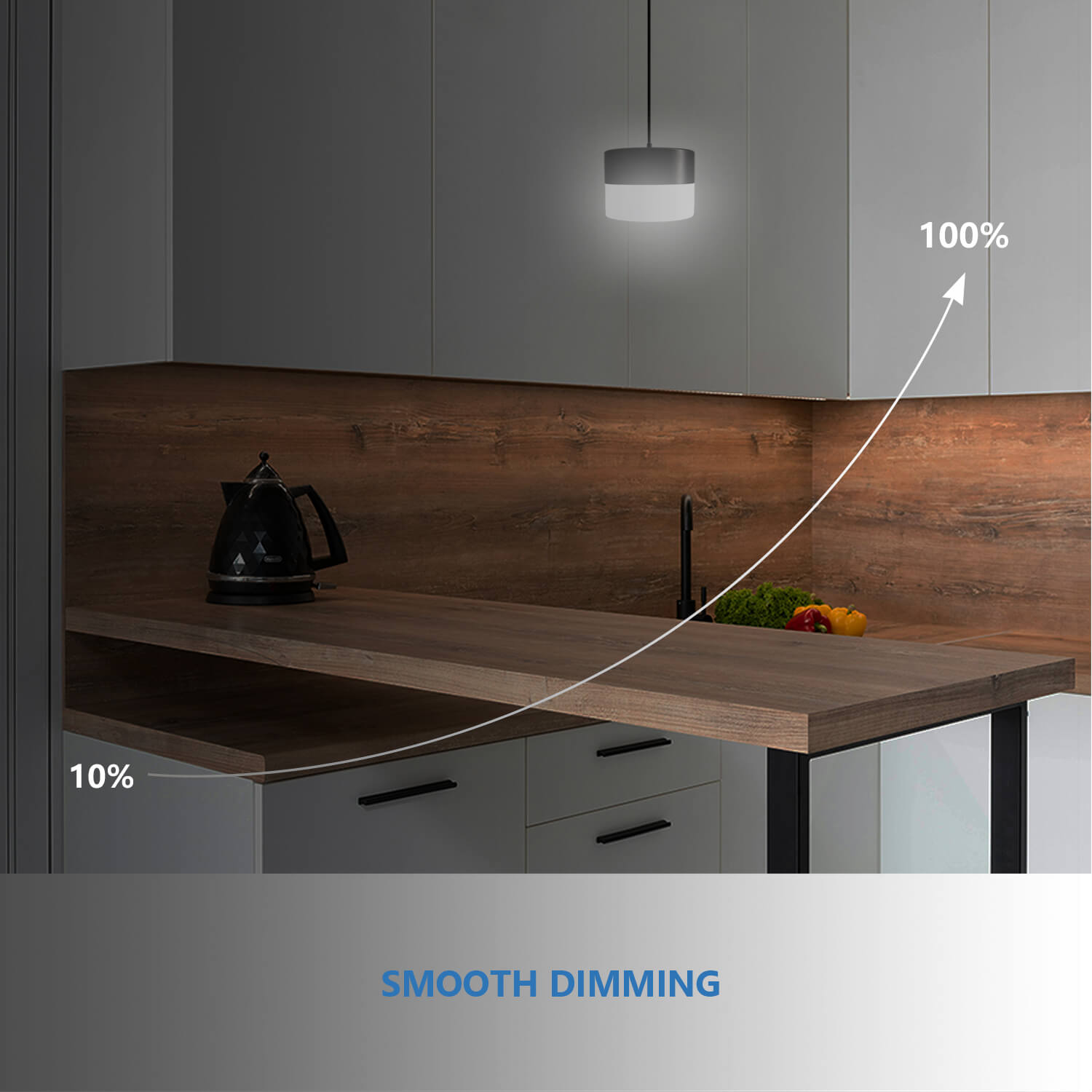1) Why LEDs Flicker or Buzz on a Dimmer
“Flicker” is visible temporal light modulation. With retrofit LEDs, most issues come from a mismatch between lamp/driver electronics and the wall dimmer’s control method, or from running below a stable minimum level. Legacy incandescent dimmers, wrong phase type, and mixed LED models on one circuit are common triggers.
One-line fix: use an LED-rated forward-phase (TRIAC) dimmer and set the low-end trim so the last 10% is stable.
2) Phase-Cut Basics (and our requirement)
- Forward-phase (TRIAC / leading-edge): trims the front of each AC half-cycle. Required for our products.
- Reverse-phase (ELV / trailing-edge): trims the back half-cycle; often smooth for some third-party drivers, but not supported by our fixtures.
- 0–10 V: separate low-voltage control for pro systems; not supported by our fixtures.
3) LED-Rated Dimmers & Low-End Trim
Pick a dimmer rated for LED loads with a minimum level (low-end) adjustment. Set the slider to ~10–20% and raise the minimum until shimmer and buzz disappear. Record the final minimum for future reference.
4) Two Fixture Paths: Bulb-Based vs Integrated
- Bulb-based pendants (E26): use a dimmable LED lamp, an LED-rated TRIAC dimmer, and set the low-end. Avoid mixing lamp models on the same circuit.
- Integrated LED pendants (built-in driver): follow the spec; our fixtures require TRIAC. Do not use ELV or 0–10 V controls.
5) Five-Step Troubleshooting (60-second field flow)
- Confirm DIMMABLE on the lamp/fixture.
- Use an LED-rated forward-phase (TRIAC) dimmer.
- Set low-end trim until stable at ~10–20%.
- Keep one LED model per circuit (no mixing).
- If instability remains, raise the minimum slightly and verify the dimmer is forward-phase.
6) Quiet Dimming Tips
- Kitchen island: preset memory; pendants 30–36″ above counter.
- Entry: soft-on/soft-off feels better at night.
- Reading nook: metal shades at very low levels prefer a slightly higher minimum.
7) Compatibility Lists (How to Use Them)
Search by lamp model or dimmer model and pick a pairing verified for forward-phase. Log your final minimum level % in a checklist so future swaps are fast.
8) FAQ
- Does “dimmable” guarantee no flicker? No. It also needs the correct phase (TRIAC) and a proper minimum level.
- Do your products support ELV or 0–10 V? No. Our fixtures support forward-phase (TRIAC) only. ELV/0–10 V are explained for awareness.
- Can I mix different LED bulbs on one dimmer? Avoid it; mixed electronics can shimmer together.
- Do I need to replace my dimmer? If it’s LED-rated forward-phase, you’re good. If it’s a legacy incandescent dimmer, a 15-minute swap to an LED-rated TRIAC model is recommended.
9) Next Steps & Download
Download the 60-Second Dimming Checklist (TRIAC) and record your stable recipe (room, lamp, dimmer, minimum %). Link in bio.








